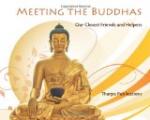I have tried my best to get out. I am weary and homesick I need the wide plains, and the deep streams, and the fresh, sweet air of the forests.
Sometimes when I am asleep I dream of my old home. I forget the crowds who stare at me, and the smell of the sawdust, and the narrow, narrow cage. I think I am once again in the great, free, open country.
Then I spring up gladly, and there are only the iron bars and the low roof. I roar with pain and grief and my keeper comes to punish me with his sharp-pointed stick. When you see me in my cage, pity me, for I am very miserable.
[Illustration: The ship of the desert]
The ship of the desert.
The home of the camel is in Arabia. In that country there are many miles of sandy desert.
We use ships to carry goods and men across the sea; in Arabia the camel is used to carry goods and men across the sand. He carries heavy loads over the scorching deserts, and for this reason he is called the Ship of the Desert.
No horse or donkey could tread where the camel does. Their hoofs would sink in the loose, dry sand. But the foot of the camel is like a broad pad or cushion, and it spreads out as he puts it down, so that it neither slips nor sinks. It has also a very thick sole to protect it from the burning heat of the sand.
The camel is able to go for a long time without food or water. He can do this because he carries with him a supply of both. The hump on his back is a large lump of solid fat, which the camel is able, in some strange way, to use as food. He does not bite it or take it into his mouth, but it wastes away, and grows smaller and smaller, when he is making a long journey with little to eat. If the poor camel is starved, his back becomes quite flat.
The camel stores up a supply of water in his two stomachs, a part of which is lined with masses of cells. When the camel drinks, he fills these cells, keeping the water in them for future use so that he is not thirsty again for a long time.
The camel’s sense of smell is very acute. It is said that he can detect water long before it is in sight.
When he is carrying a burden across the wild, barren places where no green thing grows, he is fed with a few dates, beans, or cakes. Sometimes he finds a dry, thorny plant to browse upon, but when other food is gone he must depend upon his hump.
In a caravan there are often thousands of camels. Without them, merchants could not send their goods across the desert, for no other animal could endure so long a journey under such conditions.
A HEAVY LOAD.
One day a workman, who was helping to build a new house, saw the driver of a large cart trying to back his horses into the yard. The cart was filled with a heavy load of wood, and though the two horses seemed to be patient and willing, they could move it but a little way. Then it would roll down upon their heels again.




